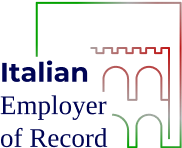26 March 2025
How to ensure workforce compliance in Italy: a guide for international employers
For international companies, ensuring workforce compliance in Italy is not just about ticking legal boxes—it’s a cornerstone of sustainable business operations. Italian employment regulations are comprehensive, providing strong protections for workers while placing detailed obligations on employers. Failing to meet these requirements can lead to financial penalties, legal disputes, and reputational harm.
This guide will walk you through the essential steps to maintaining workforce compliance in Italy. From understanding labour laws and employment contracts to managing tax contributions and navigating compliance risks, you’ll gain practical insights into how to avoid common pitfalls.
The guide introduces the Italian Employer of Record model for companies looking for straightforward solutions. This compliance-driven approach simplifies hiring and workforce management without needing a local entity.
Understanding Italian labour laws
Italy’s labour laws are among the most comprehensive in Europe, designed to ensure fair treatment and robust protections for employees. As an employer, you must understand these regulations to maintain compliance.
Italian law mandates clear employment contracts, setting out the terms of employment, working hours, benefits, and termination conditions. Employers are responsible for adhering to minimum wage standards, offering statutory leave, and ensuring that employees receive appropriate sick pay, maternity/paternity leave, and public holiday entitlements. Moreover, collective bargaining agreements (CCNLs) often apply in many sectors, adding another layer of obligations.
Failing to meet these legal standards can result in penalties, including fines or backdated payments for benefits not provided. In severe cases, non-compliance can lead to legal disputes and costly compensation claims.
Employment contracts in Italy
Employment contracts in Italy serve as the foundation of the employer-employee relationship. The law recognises several types of contracts, each with specific legal requirements.
Permanent contracts (contratti a tempo indeterminato) are the standard, offering stability for both employers and employees. They must include key details such as job duties, salary, probation periods, working hours, and notice periods.
Fixed-term contracts (contratti a tempo determinato) are common but have strict limitations—such as maximum duration and renewal conditions—to prevent abuse.
Independent contractor agreements are a popular choice for flexibility, but they carry significant compliance risks. Misclassifying a worker as an independent contractor rather than an employee can result in penalties, backdated tax and social security payments, and legal claims for benefits not provided. Ensuring that contracts are correctly drafted and align with Italian labour law is essential for long-term compliance.
Taxation and employer contributions
When hiring employees in Italy, employers must understand the complex landscape of taxes and contributions. Compliance with these financial obligations is critical to maintaining a legal and sustainable workforce.
Employers are responsible for withholding income tax (IRPEF) from employee salaries and paying it to the Italian tax authorities. In addition, you must contribute to Italy’s social security system (INPS), covering pensions, healthcare, unemployment insurance, and other statutory benefits. These substantial contributions often amount to a significant percentage of an employee’s gross salary.
Payroll tax deadlines are strict; late submissions can trigger penalties and interest charges. Moreover, contributions can be calculated based on factors like contract type, job role, and collective agreements. Accurate and timely reporting is crucial to avoid financial and legal repercussions.
Compliance risks and legal challenges
Italy’s regulatory environment for international employers presents several challenges that require close attention. Common compliance pitfalls include:
- Misclassification of workers: Incorrectly classifying employees as independent contractors can lead to fines, back payments, and legal disputes.
- Data protection breaches: GDPR compliance is mandatory, and failure to safeguard employee data can result in heavy penalties.
- Non-compliance with labour laws: Falling short on mandatory benefits, working hours, or notice periods can trigger claims from employees and investigations by authorities.
- Inadequate documentation: Poor record-keeping and incomplete contracts leave companies vulnerable to audits and legal action.
Staying proactive in identifying and addressing these risks is essential. Regular audits, ongoing training for HR teams, and clear documentation of employment terms help minimise compliance failures and strengthen your organisation’s legal standing.
HR best practices for managing workforce compliance in Italy
Strong HR processes are key to maintaining compliance and fostering a positive workplace culture. To that end, consider the following strategies:
- Clear employment policies: Establish robust workplace policies that comply with Italian labour laws and make them accessible to all employees.
- Regular training: Keep HR teams updated on the latest employment regulations and industry-specific agreements.
- Accurate record-keeping: Maintain detailed records of contracts, payroll transactions, tax submissions, and employee communications.
- Compliance audits: Conduct periodic internal reviews to identify potential gaps in your compliance efforts and address them proactively.
- Fair treatment: Ensure that all employees are treated equitably, with consistent policies on pay, leave, and performance reviews.
By fostering transparency and consistency in HR practices, businesses can reduce compliance risks and build a strong foundation for sustainable growth in Italy.
How an Employer of Record (EOR) simplifies workforce compliance in Italy?
Understanding Italy’s complex labour laws and tax regulations can be daunting, especially for international businesses without a local entity. This is where an Employer of Record (EOR) can provide significant value.
An EOR acts as the legal employer on behalf of the client company, handling compliance responsibilities from employment contracts to payroll and tax reporting. For businesses hiring in Italy, an EOR ensures that every aspect of workforce management adheres to local laws, collective bargaining agreements, and tax codes.
Key benefits of using an EOR include:
- Effortless compliance: The EOR manages all tax withholdings, social security contributions, and statutory benefits, ensuring that your company meets Italian requirements without the administrative burden.
- Risk mitigation: By employing workers under fully compliant contracts, the EOR eliminates the risks of misclassification, legal disputes, and fines.
- Local expertise: With in-depth knowledge of Italian labour law and payroll regulations, the EOR helps navigate complex legal frameworks and keeps your operations up-to-date with regulatory changes.
- Administrative efficiency: The EOR handles routine HR tasks—such as payroll processing, benefit administration, and compliance reporting—allowing your company to focus on core business objectives.
For example, a Canadian tech company looking to expand into Italy struggled to manage local employment laws and tax regulations. Without an in-house compliance expert, they faced risks of fines and legal challenges related to their growing workforce. To address these issues, the company partnered with an Employer of Record.
The EOR took over the management of employment contracts, payroll, and tax filings, ensuring every employee received proper benefits and that all obligations were met on time. This allowed the Canadian business to focus on its core operations, confident that its workforce in Italy was fully compliant.
Prioritise workforce compliance
Ensuring workforce compliance in Italy requires a thorough understanding of labour laws, employment contracts, taxation rules, and HR best practices. The challenges can be significant for international companies, but they are not insurmountable.
By prioritising compliance, maintaining accurate records, and regularly reviewing HR procedures, businesses can avoid costly mistakes and foster a fair, transparent workplace.
When in-house compliance expertise is limited or setting up a local entity is impractical, an Employer of Record provides an efficient, risk-free alternative. By leveraging the EOR’s expertise, companies can confidently manage Italy’s regulatory landscape, ensuring that all employees are hired, managed, and paid in full compliance with the law. Contact us today to learn how we can help ensure your workforce compliance in Italy.



